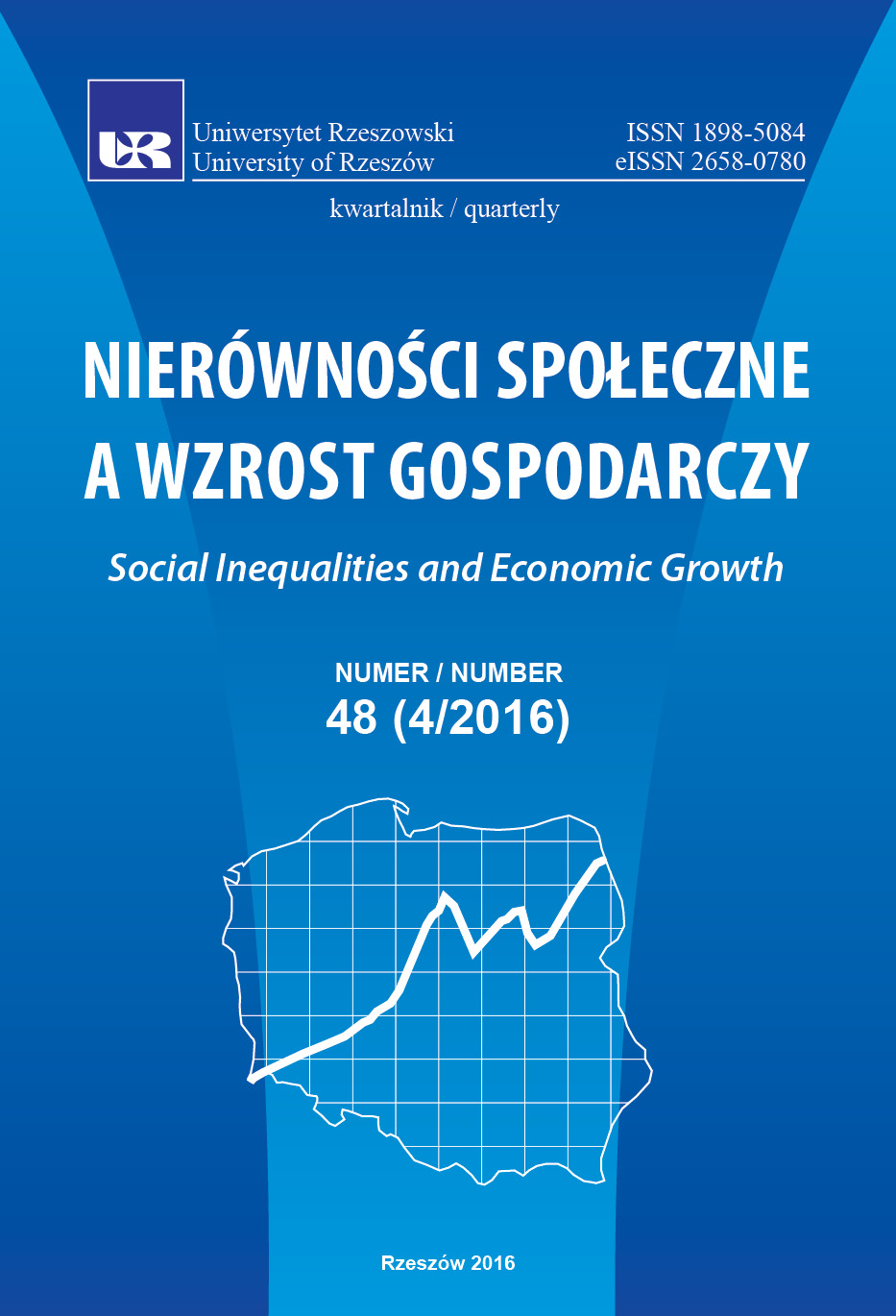Social Cooperatives as Institutions of Social Responsibility
DOI:
https://doi.org/10.15584/nsawg.2016.4.29Keywords:
social cooperatives, exclusion, responsibility, social integrationAbstract
In the paper presented the role of cooperatives as an institution aimed at promoting behaviors that shape the same responsibility, that its activities are guided by such values as honesty, social responsibility and concern for others, especially the excluded. Social cooperatives is an innovative form of non-standard ways to solve social problems. In Poland, cooperatives operate in accordance with the Act of 27 April 2006 on social cooperatives. Cooperatives are directed to a special group of people, they can put it on, inter alia, the unemployed, the disabled, the homeless, addicted to alcohol, drugs, mentally ill, refugees and non-governmental organizations, local government units. Social cooperatives are aimed at performing joint enterprise based on personal work of members. Because it increases the diversity of public tasks that are to be implemented by local authorities, it is important to municipalities engaged to perform these tasks just social cooperatives, which are often more effectively perform the tasks assigned. Such solutions suited for many years, for exam-ple in Italy. Frequently, the initiative must come from local institutions that through such activities integrate the entire local community, and thus allow the inclusion of social and professional life of the unemployed and the excluded. It is therefore necessary effective cooperation of local government units, labor market institutions and other organizations in creating conditions for the establishment of social cooperatives that perform many important tasks primarily affect the reduction of unemployment, especially among people who have the greatest difficulties in the labor market.Downloads
Download data is not yet available.
Downloads
Published
2020-11-13
How to Cite
Kawa, M., & Kuźniar, W. (2020). Social Cooperatives as Institutions of Social Responsibility. Social Inequalities and Economic Growth, 4(48), 389–400. https://doi.org/10.15584/nsawg.2016.4.29
Issue
Section
Articles
License
Copyright (c) 2016 University of Rzeszow

This work is licensed under a Creative Commons Attribution-ShareAlike 4.0 International License.


